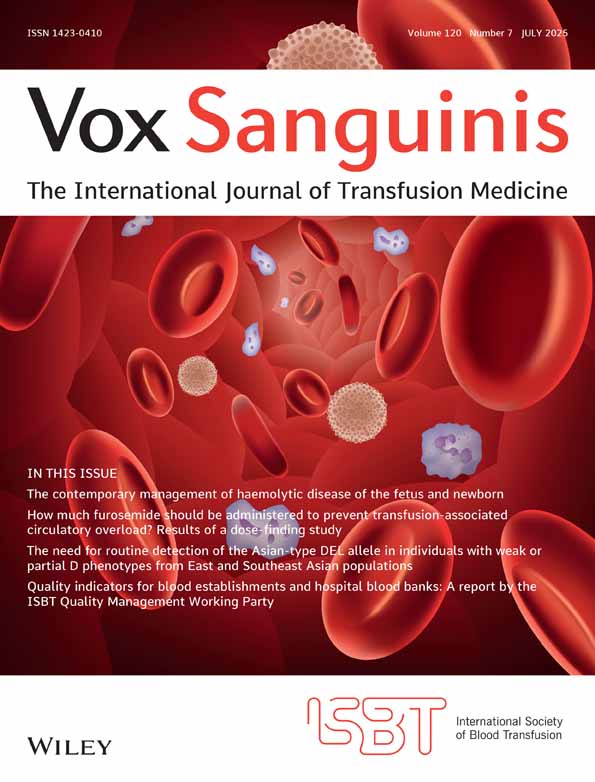Effect of ABO Group, Secretor Status and Sex on Cold Hemagglutinins in Normal Adults1
This investigation was supported by PHS Grant No. CA 26268 awarded by the National Cancer Institute, DHHS.
Abstract
The ABO group, Lewis type and secretor status were determined in 546 normal individuals (241 male, 305 female). Their serum was tested at 4°C for agglutination of group O red blood cells; the antibody was presumed to be auto-anti-I; the results were expressed as a score. Among non-A female donors, the score was higher for secretors than nonsecretors (p<0.05). Among non-A secretors of both sexes, female donors had a higher score than male donors (p<0.05). These results suggest that the level of anti-I in the serum of normal individuals may be affected by the donor's ABO group, secretor status and sex.




